Romano Musumarra | |
|---|---|
 | |
| Born | 21 July 1956 (age 67) Rome, Italy |
| Occupation | Composer |
Romano Musumarra (born 21 July 1956) is an Italian composer, arranger, musician and record producer.
Romano Musumarra | |
|---|---|
 | |
| Born | 21 July 1956 (age 67) Rome, Italy |
| Occupation | Composer |
Romano Musumarra (born 21 July 1956) is an Italian composer, arranger, musician and record producer.
Born in Rome, Musumarra approached music as a child, learning to play pipe organ at his church. [1] He studied piano, composition and conducting at the Accademia Nazionale di Santa Cecilia, and in 1975 he formed the melodic pop-rock group La Bottega dell'Arte, with whom he achieved some significant success throughout the 1970s. [2] [3] Besides his work with the band, in 1978 he made an electronic album called Automat together with Claudio Gizzi. [1] [4]
In 1983 he left La Bottega dell'Arte and devoted himself to the activity of arranger and composer, arranging among others works by Riccardo Cocciante, Mango, Fred Bongusto and Franco Califano, and composing the music for Severino Gazzelloni's album Azzurra. [3]
In 1984, after listening to an audition of her, he asked to newcomer Jeanne Mas to record one of his compositions, "Toute Première Fois". After hearing the song, which featured an unusual mix of acoustic and electronic sounds for the time, EMI signed Mas and the resulting single was a great success in France, [1] reaching the number eight on the singles chart. [5] Musumarra continued his collaboration with Mas, composing and producing the tracks on her first two albums, including "Johnny, Johnny" and "En rouge et noir", both number one in the French chart. [1] [5]
Due to the success of his work with Jeanne Mas he was increasingly in demand by French artists, so at the end of 1985 he decided to move to France. [1] [3] In 1986 he contributed to the musical success of Princess Stéphanie of Monaco, for whom he composed the hits "Ouragan" (initially proposed to Jeanne Mas) and "Flash/One Love to Give". [1] [5] The same year he made his debut as a film score composer with Régis Wargnier's The Woman of My Life and was instrumental in launching Elsa Lunghini (then simply Elsa), for whom he wrote and produced the debut single "T'en va pas", number one in the French charts for two months. [1] [6]
In addition to launching new names, Musumarra has composed songs for established artists such as Celine Dion, Mireille Mathieu, Sylvie Vartan, Alain Delon, Nikka Costa, Dana Dawson, Hélène Ségara, Tina Arena, Régine, Garou, Bruno Pelletier, and Marc Lavoine. [1] [2] [3] [7]
Since the 2000s, he has dedicated himself to composing songs in the operatic pop genre, collaborating with Luciano Pavarotti, Il Divo, Katherine Jenkins, Alessandro Safina, Vittorio Grigolo, among others. [1] In 2016, his song "On écrit sur les murs", originally composed for Demis Roussos, reached number three in the French hit parade thanks to a cover by the group Kids United. [1] [7]
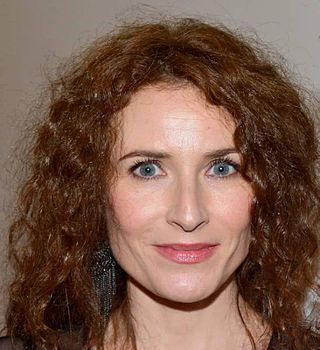
Elsa Lunghini, known mononymously as Elsa, is a French singer and actress. She was a teenage pop-star in the late-1980s. In 1986, she was the youngest singer to reach number one in the French charts, with the single "T'en va pas", and she went on to sell millions of records during the decade. Elsa, her album of 1988, had achieved double-platinum status by 1993.

Dion chante Plamondon is the tenth French-language studio album by Canadian singer Celine Dion. It was released on 4 November 1991 by Sony Music and features songs with words written by French-Canadian lyricist, Luc Plamondon. In Europe, the album was renamed Des mots qui sonnent, meaning Words That Resonate. It was promoted in Quebec by four promotional singles: "Des mots qui sonnent", "L'amour existe encore", "Je danse dans ma tête" and "Quelqu'un que j'aime, quelqu'un qui m'aime". In France, three commercial singles were released: "Je danse dans ma tête", "Un garçon pas comme les autres (Ziggy)" and "L'amour existe encore". Dion chante Plamondon won the Juno Award for Francophone Album of the Year and Félix Award for Best Selling Album of the Year. It topped the chart in Quebec and reached number four in France.

Riccardo Cocciante, also known in French-speaking countries and the United States as Richard Cocciante, is an Italian and French singer, composer, and musician.

Jeanne Mas is a French pop singer. She is well known in France, Switzerland, Canada and Belgium for a number of hit singles released in the 1980s. Her first success was "Toute première fois" in 1984. This song was simultaneously released in the United Kingdom in English. Two of her singles charted at number one in France: "Johnny, Johnny" and "En rouge et noir" in 1985 and 1986, respectively. Her 1980's albums are good examples of the Euro disco electropop style popular in Continental Europe at the time, featuring synthesizers and very catchy melodies.

Giovanni "Gianni" Meccia is an Italian composer, singer-songwriter, record producer and actor. He is often associated with Jimmy Fontana.

"Je danse dans ma tête" is a song by Canadian singer Celine Dion from her tenth studio album, Dion chante Plamondon (1991). It was written by French-Canadian lyricist Luc Plamondon and Italian composer Romano Musumarra, and produced by Musumarra. In March 1992, "Je danse dans ma tête" was released as the third promotional single in Quebec and the lead commercial single in France. It reached number three on the airplay chart in Quebec. The music video, directed by Alain DesRochers, won the Much Music Video Award for Best Adult Contemporary Video in 1992.
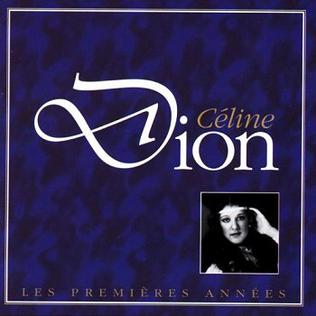
Les premières années is a French-language compilation album by Canadian singer Celine Dion, released in France by Versailles on 10 January 1994. It features eighteen rare songs recorded between 1982 and 1988, including the Eurovision-winning "Ne partez pas sans moi". In France, Les premières années was certified Gold. The album was also released in Belgium, reaching number twelve on the chart in Wallonia.

Jeanne Mas is the eponymously titled debut album from French pop singer Jeanne Mas. The music is entirely written by Romano Musumarra who also worked with artists such as Elsa Lunghini and Princess Stephanie of Monaco, the album peaked at #5 for two months on the French Albums Chart and achieved Gold status.

Femmes d'aujourd'hui is the second studio album by Jeanne Mas, released in April 1986 by Pathé Marconi. Music for 8 of the 10 tracks was written by Romano Musumarra. The French singer Daniel Balavoine also participated in the production of the album. Charting from 3 May 1986, it peaked at #1 for two months on the French Albums Chart and spent 63 weeks in the top 30, most of them in the top ten. It was certified Platinum and remains Mas' most successful album to date in terms of sales and chart performance.

Les crises de l'âme is the third studio album by French pop singer Jeanne Mas, released in 1989.

"Ouragan", also released in English under the title "Irresistible", is the first single recorded by Princess Stéphanie of Monaco, from her debut album Besoin. Released in 1986, it was a great success in France, where it topped the charts for almost three months, and in Germany.
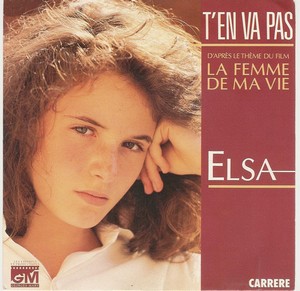
"T'en va pas" is a 1986 song recorded by the French artist Elsa Lunghini. Released as a single on 12 October 1986, this song, her debut single, was the soundtrack of the 1986 movie La Femme de ma vie. It was a smash hit in France.

"Johnny, Johnny" is a 1985 song recorded by the French singer Jeanne Mas. It was her second single from her debut album, Jeanne Mas, on which it features as the second track. Released in February 1985, the song became a hit in France, topping the singles chart for about one month.

"Flash", also recorded in an English-language version titled "One Love to Give", is a 1986 song recorded by Princess Stéphanie of Monaco. It was the second single of her debut album, Besoin, and was released at the end of 1986. It was a top five hit in several European countries, including France, Finland and Sweden.

"Seul" is the name of a 2000 song recorded by the Canadian singer Garou. It was released on October 2000 as the first single from his debut album, Seul, on which it features as the fourth track. It achieved a smash success in France and Belgium (Wallonia) where it topped the charts for three months, and was a top ten hit in Switzerland. To date, it is his most successful solo single.
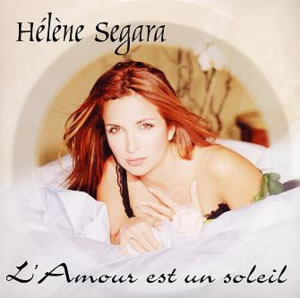
"L'amour est un soleil" is a 2003 song recorded by French artist Hélène Ségara. It was the lead single from her fourth studio album, Humaine, on which it features as third track, and was released on 11 April 2003. It was a hit particularly in France, where it almost topped the chart.

"Io canto" is a song written by Riccardo Cocciante and Marco Luberti. Originally released in 1979 by Cocciante as the title single for his album …E io canto, the song became a hit in Italy and during the following years, it became an Italian standard.
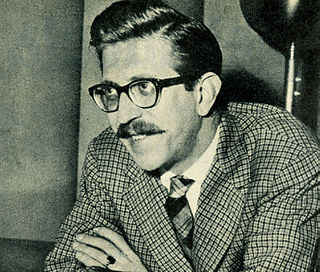
Bruno Canfora was an Italian composer, conductor, and music arranger.

Maladie d'amour is a 1987 French drama romance film, directed by Jacques Deray. The film takes its title from the well-known song of the same name by Henri Salvador.
La Bottega dell'Arte were an Italian pop music group active between 1974 and 1985.